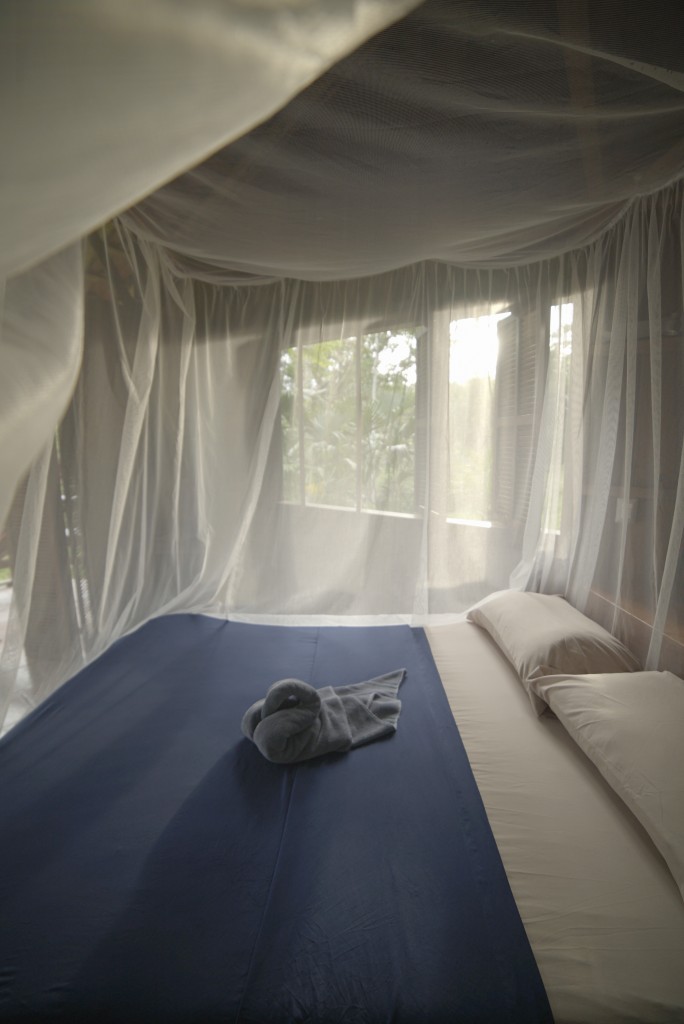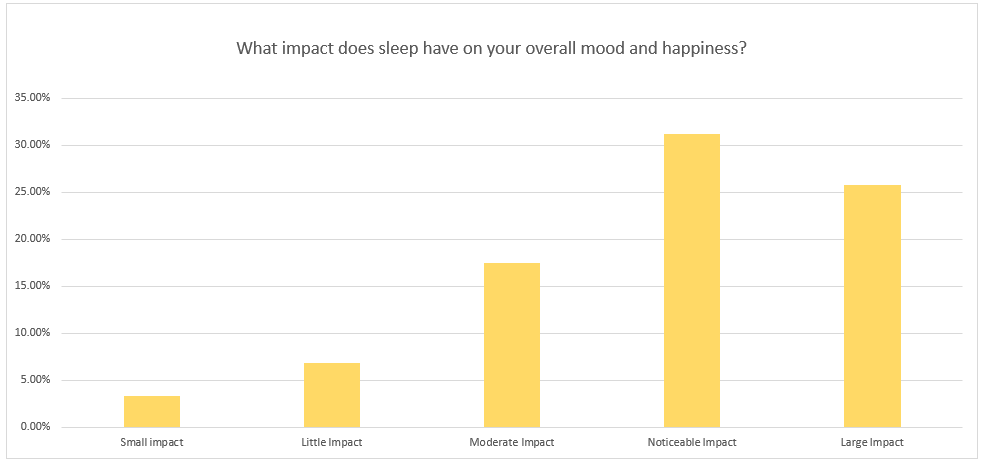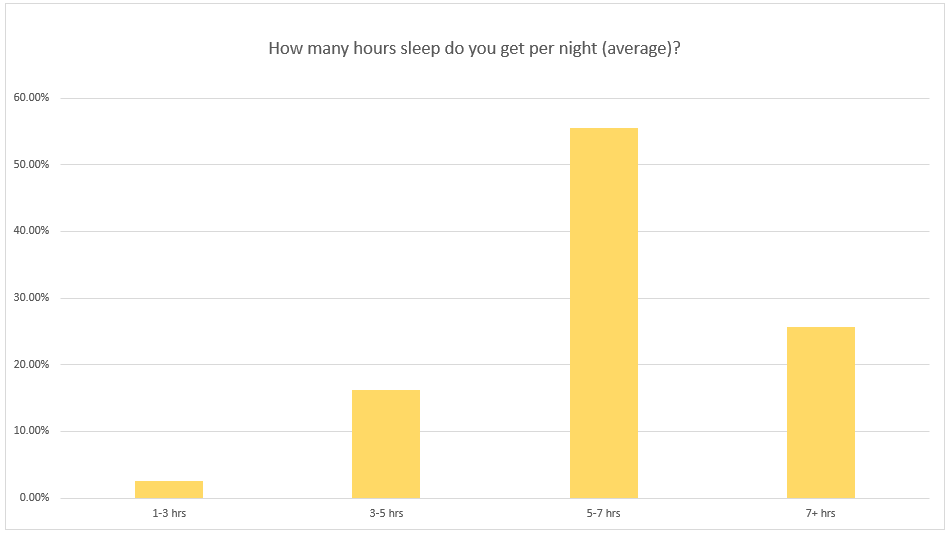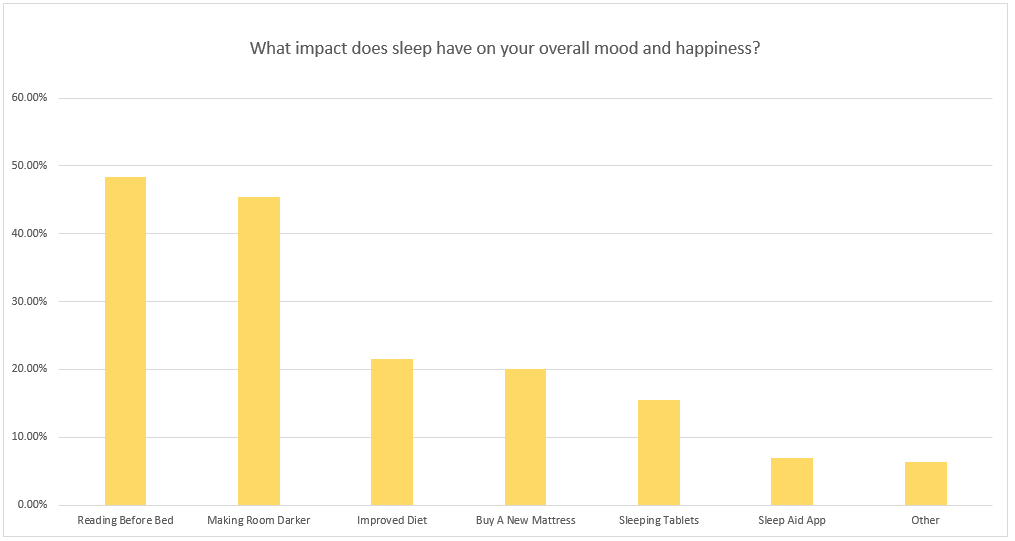
You know the feeling. When you wake up on the wrong side of the bed. You’ve had an awful night’s sleep. You feel so drained you want to cry, yet you have to get up and soldier on with your day. It sucks.
If you keep waking through the night or spend hours lying awake in bed, it’s bound to have an impact on your mood. I’ve been wondering lately just how much.
I write about anxiety and mental health all the time. Yet I’ve not really focused on sleep at all. Aside from this middle of the night rant I wrote a while back. In fact, here’s an insightful quote from it…
I think the worst thing about not sleeping isn’t the fact that you’re tired. It’s worrying about the fact that you will be tired. Thinking about the day ahead and how you’re going to get through the day without looking like a zombie from The Walking Dead.
I haven’t been sleeping all that well lately. I’ve gone from being someone who easily sleeps 8 hours to having annoying interrupted sleep. Which is mostly caused by anxiety, and lately, probably I dunno, the scorching hot weather?
So, instead of writing random posts about insomnia, I’ve taken action. I teamed up with the folks at Revival Beds to do some research on sleep and wellbeing. We wanted to know just how much people rate their sleep in relation to their wellbeing, what strategies people use to improve their sleep and on average how many hours people are getting.
How much do you value your sleep???
So, onto the results. Our study of over 200 women in the UK found that 72% of people believe that sleep has a big impact on their overall happiness. And only a small handful (3%) of people (who apparently can survive and thrive on little sleep) said they think sleep has little impact on their happiness and mood.
Ergo, sleep can make you feel really good, or really bad. It impacts how you begin your day. And probably how you end it too. Not having enough sleep is sort of like not having enough food – we tend to begin to slowly perish without it.
Sleeping poorly increases the risk of having poor mental health. In the same way that a healthy diet and exercise can help to improve our mental health, so can sleep. (Mentalhealth.org sleep report)
Take your concentration levels for example. If you’ve not had enough sleep, you might make errors at work, forget something or simply not be able to focus on one thing for more than five seconds. If you’re lacking in sleep it’s a bit like a car that’s lacking in petrol or engine oil. Something’s gotta give. And unlike a car, your engine is still running and processing when you’re switched off; a.k.a asleep.
Sleep loss alters normal functioning of attention and disrupts the ability to focus on environmental sensory input. (Medical news Daily)
How many hours do people sleep for on average?
Have you ever asked your friends how many hours sleep they get on average? It doesn’t really crop up in conversation. Other than for some reason when you’ve slept really badly, and it makes you feel better to moan about it to everyone around you. ‘Ughhh, I’m so tired I got like zero sleep last night.’ *sigh*
Well, we also asked people how many hours sleep they get each night on average. And you know what? Only 26% of people said they get more than seven hours sleep each night. 55% of people said they get 5-7 hours sleep each night which I guess is okay.
And my heart goes out to those (16% of respondents) who said they only get 3-5 hours sleep each night. That. Must. Be. Awful. And yeah, 2.6% of people said they only get 1- 3 hours sleep. How do they even survive?
Modern distractions and coping strategies to get more sleep
With smartphone flashing in our faces 274,949 times a day, extremely busy and hectic lifestyles and a whole host of stresses, it’s not surprising that people’s sleep quality is so poor. Most of the time I can’t sleep because I either a) can’t switch off or b) I’m anxious about something. I get my worst anxiety at night time, probably because my brain is left to its own devices as I lay on my bed trying to block out all the negative thoughts.
Now, I wouldn’t write a post about sleep without giving you some handy advice. I wanted this research to add some value to people as well as making a statement about sleep and mental health. So, we asked people what they do to improve their quality/amount of sleep. I’m happy to share the results with you in the hope that it might give you some inspiration/strategies to improve your sleep.
Reading and making sure your room is dark
So, as you can see from the results above, the number one thing people do to try and sleep is read before bed! I do this myself, and it’s probably one of the only things that helps. Forcing yourself to read words on a page distracts your thoughts from all the stressful stuff, and it always makes my eyes start to drop eventually. Almost half of people – 48.4% said that reading before bed helps them.
Another strategy to help with sleep is to adjust the light levels in your bedroom. We all like to sleep in complete darkness, and any sneaky bits of light can be distracting. 45.4% of people that Revival spoke to said that making the room darker helps to improve their quality of sleep.
A lovely company called Utmost me recently sent me one of their sleep masks which helps me if the sunrise wakes me up in the morning. I also use my comfy sleep mask for daytime naps.
Other strategies include an improved diet, buying a new mattress (which coincidentally I have just done, more on this to come in a future post), using sleeping tablets and a sleep aid app. You know what, I’m sooo surprised that only 0.7% of people said meditation helps them.
What sleep strategies do you use? Feel free to share them in the comments section below. Personally, I’d say my main strategies include trying to think of positive things, having a soothing herbal tea, a hot bath or reading in bed. I’m also currently trying some all natural sleeping tablets that are supposed to help with anxiety too.
I’d like to say a big thank you to Revival Beds for working with me on this fascinating research project. I hope you’ve found it interesting. For more information on the results get in touch.



